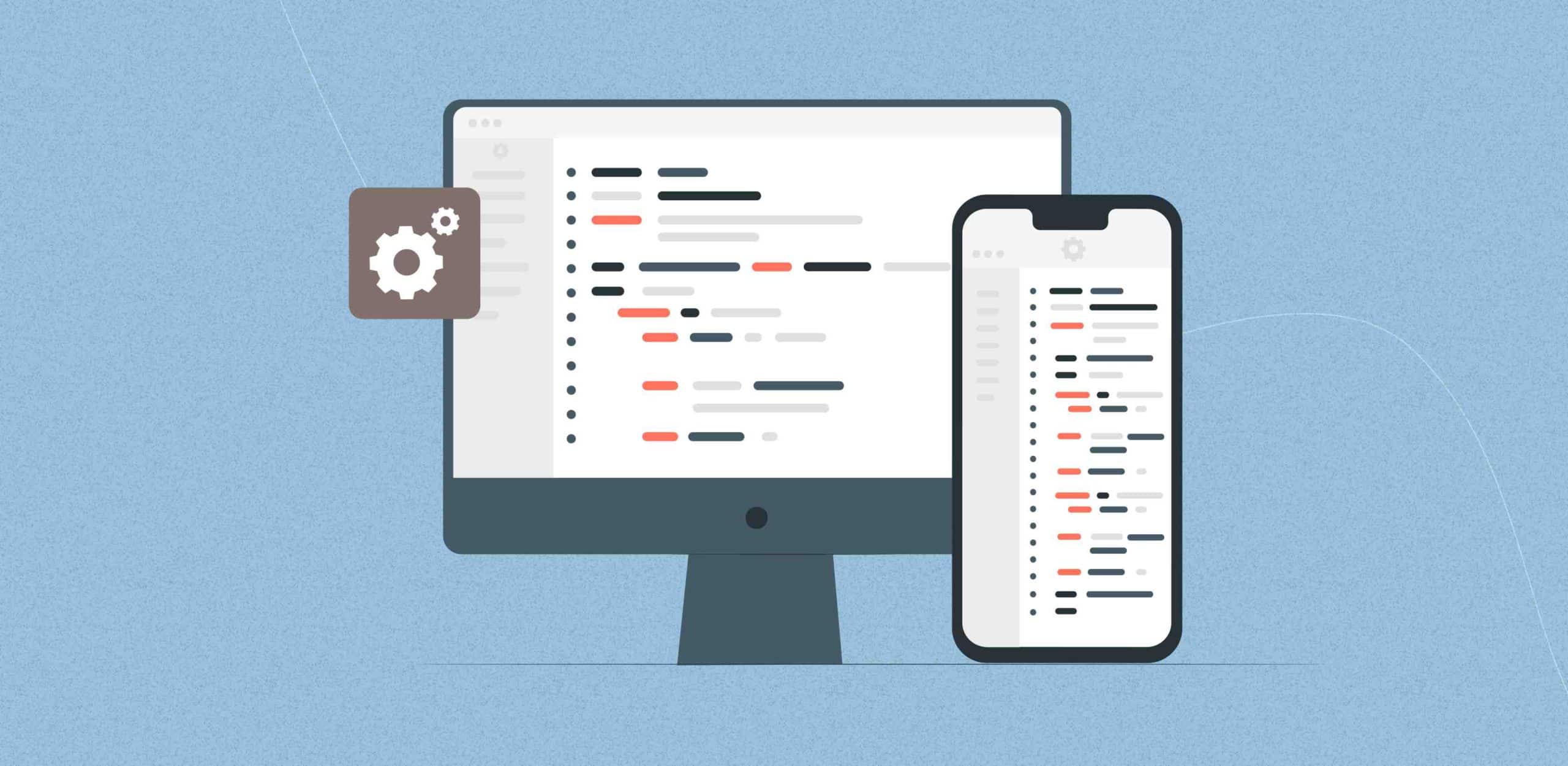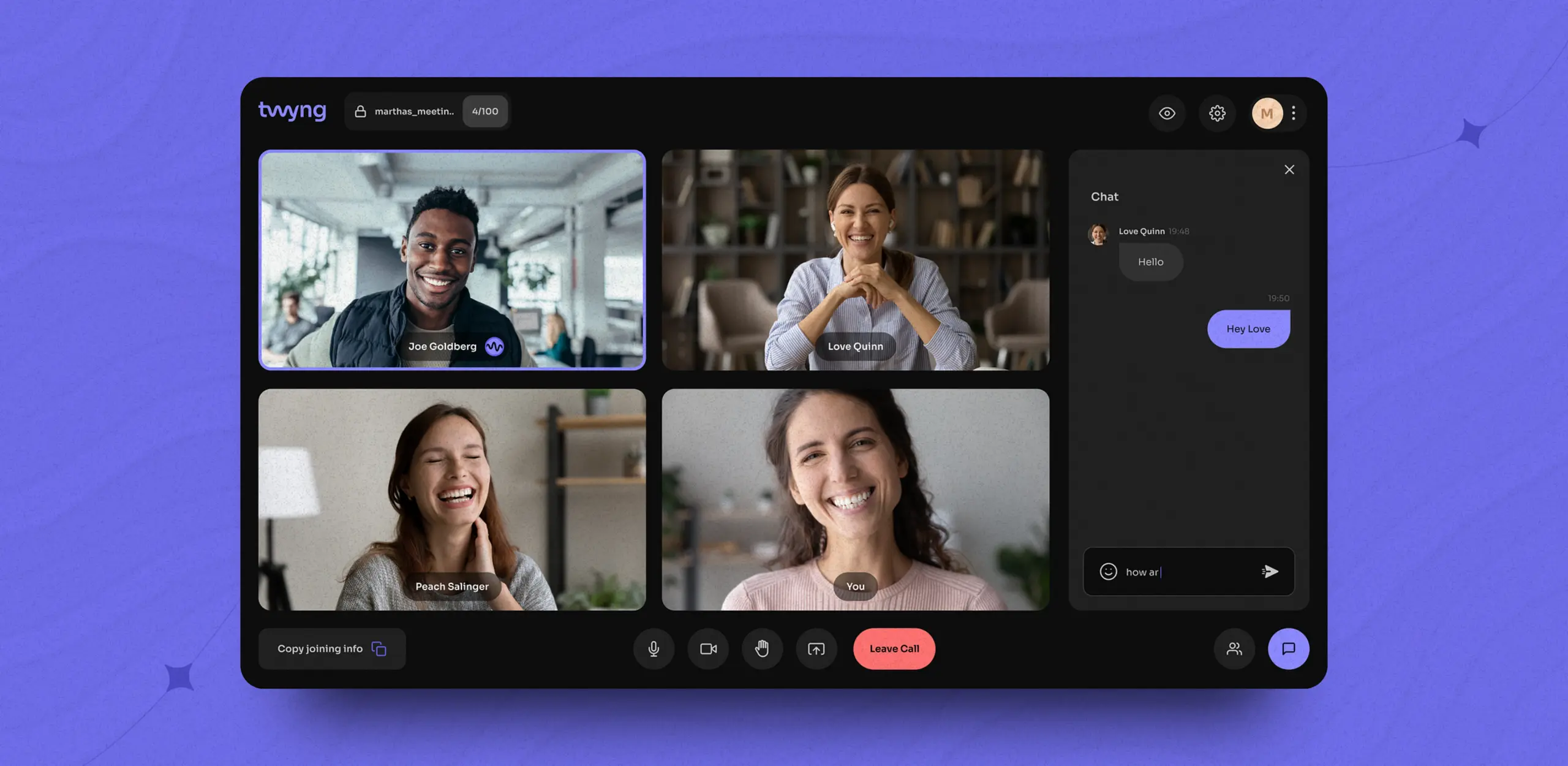Introduction
Video streaming app development has become a game-changer in the digital entertainment industry, revolutionizing the way users consume content. With the rapid rise of OTT app development, live streaming, and on-demand video services, businesses are actively investing in cutting-edge, scalable video streaming solutions to engage a global audience and drive revenue growth.
However, choosing the right video streaming app development company is a critical decision that impacts the performance, security, and overall success of your platform. A skilled development partner can help you build a robust, feature-rich, and scalable application while ensuring seamless user experience and cost optimization.
In this guide, we’ll explore the key factors to consider when selecting a video streaming app development service provider, essential questions to ask before hiring, and how to make the best choice for your project.
Why Hiring Video Streaming App Developers Leads to the Best Solutions? Get to know more.
Understanding Your Project Requirements
Before selecting a video streaming app development company, it is essential to have a clear understanding of your project needs. Defining your objectives, target audience, features, and security requirements will help you choose the right development partner who can create a scalable, feature-rich, and secure video streaming solution tailored to your business goals.
Define Your Video Streaming App Type
Different types of video streaming apps serve various industries and audiences. Identifying the category that aligns with your business model will help streamline the development process. Below are some of the most common video streaming applications:
Live Streaming Apps
Live streaming apps enable real-time video broadcasting, allowing users to interact and engage with content as it happens. These are widely used for:
- Sports Streaming (e.g., ESPN Live, DAZN)
- Webinars & Conferences (e.g., Zoom, Webex)
- Gaming Streams (e.g., Twitch, YouTube Live)
- Social Media Live Streams (e.g., Facebook Live, Instagram Live)
Live streaming apps require low-latency streaming, robust server infrastructure, and adaptive bitrate streaming to ensure smooth video playback.
On-Demand Video Streaming Apps (VOD)
VOD platforms allow users to watch pre-recorded content anytime. This model is commonly seen in:
- Subscription-Based Streaming (e.g., Netflix, Hulu)
- Pay-Per-View Content (e.g., Apple TV+, Amazon Prime Video)
- Educational & Corporate Training Videos
For VOD platforms, implementing high-quality content delivery, content categorization, and AI-powered recommendations is crucial for a seamless user experience.
OTT Platforms (Over-The-Top Streaming)
OTT platforms deliver content directly over the internet without relying on traditional cable or satellite providers. Examples include:
- TV Streaming Services (e.g., Disney+, Amazon Prime, HBO Max)
- News & Media Streaming (e.g., BBC iPlayer, CNN Live)
- Multimedia Broadcasting
OTT platforms require multi-device compatibility, content licensing compliance, and monetization models like SVOD (Subscription Video On Demand), AVOD (Ad-Supported Video On Demand), or TVOD (Transactional Video On Demand).
Educational & E-Learning Platforms
Educational video platforms cater to students, professionals, and corporate learners by offering recorded and live training sessions. Popular platforms include:
- Online Courses & Lectures (e.g., Coursera, Udemy)
- Corporate Training (e.g., LinkedIn Learning, Skillshare)
- Skill Development & Certifications
These platforms must incorporate interactive features, assessments, progress tracking, and certification integration for an engaging learning experience.
Social Media & Entertainment Streaming
Apps in this category focus on short-form video content, live interactions, and user-generated content. Examples include:
- Short Video Platforms (e.g., TikTok, Instagram Reels)
- Music Streaming (e.g., Spotify, Apple Music)
- Influencer & Creator-Driven Content
For such platforms, integrating AI-driven recommendations, live interactions, and monetization options is essential.
See how Video Streaming Application Development is revolutionizing entertainment.
Key Features Your App Should Have
Regardless of the type of video streaming app development, certain core features are essential to ensure seamless performance, user engagement, and monetization.
Adaptive Bitrate Streaming (ABR)
ABR dynamically adjusts video quality based on the user’s internet speed, ensuring a buffer-free experience on all devices. This feature is essential for live streaming and OTT platforms.
Cloud-Based Infrastructure
A cloud-based backend enables scalability, allowing the app to handle thousands of concurrent users without performance lags. Popular choices include:
- AWS Media Services
- Google Cloud Video Intelligence
- Microsoft Azure Media Services
Content Delivery Network (CDN) Integration
A CDN optimizes content distribution across different geographical locations, reducing buffering and improving video playback speed. Top CDN providers include:
- Akamai
- Cloudflare
- Amazon CloudFront
User Authentication & Access Control
Security features like Single Sign-On (SSO), OAuth authentication, and multi-device login sync enhance the user experience while preventing unauthorized access.
Monetization Models
Your streaming platform should support various revenue models, such as:
- Subscription-Based (SVOD): Monthly or yearly subscription plans (e.g., Netflix, Disney+).
- Pay-Per-View (TVOD): Users pay for individual content (e.g., Amazon Prime Rentals).
- Ad-Based (AVOD): Free content with ads (e.g., YouTube, Pluto TV).
- Hybrid Monetization: A combination of SVOD, TVOD, and AVOD.
AI-Based Content Recommendation
Implementing Artificial Intelligence (AI) & Machine Learning (ML) enhances user engagement by suggesting personalized content based on viewing history and preferences.
Multi-Device Compatibility
Your app should support playback on multiple devices, including:
- Smartphones (iOS, Android)
- Web Browsers (Chrome, Safari, Firefox)
- Smart TVs (Apple TV, Roku, Android TV)
- Gaming Consoles (PlayStation, Xbox)
This ensures a seamless experience across platforms.
Security & Compliance
Security is a critical factor in video streaming app development services, especially when dealing with copyrighted content, user data, and transactions. Implementing industry-standard security measures will help prevent content piracy, unauthorized access, and data breaches.
Digital Rights Management (DRM) for Content Protection
DRM ensures that copyrighted video content is protected from unauthorized downloads, screen recording, and illegal distribution. Popular DRM solutions include:
- Google Widevine
- Apple FairPlay
- Microsoft PlayReady
GDPR & Compliance for Data Security
If your platform collects user data, payment details, or location information, compliance with GDPR (General Data Protection Regulation) and CCPA (California Consumer Privacy Act) is mandatory.
End-to-End Encryption & Secure Transactions
Implementing AES-256 encryption and SSL/TLS protocols secures data transmission, preventing hacking attempts and unauthorized access.
Watermarking & Anti-Piracy Measures
To protect premium content from piracy and leaks, use dynamic watermarking, forensic watermarking, and IP-based tracking.
Why Defining Your Requirements Matters?
Having a clear roadmap for your video streaming app development will help you:
- Identify the right video streaming app development service provider.
- Avoid unnecessary development costs and delays.
- Ensure scalability, security, and high performance.
- Select the right monetization strategy for business success.
By outlining your project goals, features, and security needs, you can confidently choose a video streaming app development company that aligns with your business vision and delivers a future-proof, scalable video streaming solution.
Transform your business with a powerful video streaming app!
Transform your business with a powerful video streaming app!
Factors To Consider When Choosing a Video Streaming App Development Company
Choosing the right video streaming app development company requires thorough research and evaluation. Here are the key factors to consider:
Experience in Video Streaming App Development
A company with a strong portfolio in OTT app development and live streaming software will have:
- Proven expertise in handling streaming technologies like WebRTC, HLS, RTMP, and DASH.
- Experience in cloud-based architectures like AWS Media Services, Azure Media, or Google Cloud.
- Previous projects showcasing successful video streaming app development services.
Technology Stack & Scalability
Your streaming app should be built on a robust and scalable tech stack. Look for a company experienced in:
- Frontend Technologies – React Native, Flutter, Swift, Kotlin
- Backend Development – Node.js, Python (Django), FastAPI, Golang
- Database Management – PostgreSQL, MongoDB, Firebase
- Streaming Protocols – HLS, DASH, RTMP, WebRTC
- Cloud & CDN Solutions – AWS, Google Cloud, Akamai, Cloudflare
A scalable video streaming solution ensures your platform can handle thousands (or millions) of concurrent users.
Customization & Third-Party Integrations
Your streaming app should support:
- Custom UI/UX to reflect your brand identity.
- API & SDK Integration for third-party services like payment gateways, analytics, and social media.
- Multi-platform compatibility for mobile, web, and Smart TVs.
Security & Data Protection Measures
A secure video streaming platform should include:
- DRM and watermarking for content protection.
- Encrypted video transmission to prevent piracy.
- Multi-layered user authentication and role-based access.
Cost & Pricing Model
Understand the pricing models offered by development companies:
- Fixed Price Model – Best for small-scale projects with well-defined requirements.
- Hourly Pricing Model – Suitable for projects requiring flexibility and scalability.
- Dedicated Development Team – Ideal for long-term projects needing constant updates.
Client Reviews & Reputation
Before finalizing a development company, check:
- Client testimonials on platforms like Clutch, GoodFirms, and Upwork.
- Case studies and previous work in video streaming development.
- Social media reviews and LinkedIn recommendations.
Questions To Ask Before Hiring a Video Streaming App Development Company
Before hiring a video streaming app development service, ask these crucial questions:
What is your experience with video streaming technologies?
A company specializing in live streaming software and OTT app development should have in-depth knowledge of HLS, WebRTC, Wowza, and adaptive streaming technologies.
Can you provide case studies or client references?
Check if the company has built apps similar to your requirements and assess their success stories.
How do you handle app scalability and performance optimization?
A good video streaming app development company should use load balancing, CDN integration, and efficient caching techniques.
What security measures do you implement for video content protection?
Ensure the app includes DRM, token-based authentication, encryption, and watermarking.
What is your post-launch support and maintenance policy?
A reliable company should offer regular updates, performance monitoring, and security patches.
What is the estimated cost and timeline for development?
Get a detailed breakdown of costs, including development, third-party integrations, hosting, and maintenance.
Conclusion
Choosing the best video streaming app development company requires a strategic approach. By understanding your project needs, evaluating a company’s expertise, and ensuring they meet scalability and security standards, you can build a feature-rich streaming platform tailored to your business goals.
Whether you’re launching an OTT app, live streaming platform, or video-on-demand service, selecting an experienced development partner is crucial to success.
At Enfin, we specialize in video streaming app development services, offering scalable and secure solutions for OTT platforms, live streaming, and VOD applications. Our expert team ensures seamless streaming experiences with advanced technologies like HLS, WebRTC, and AI-based recommendations. Contact us today to discuss your project and get a free consultation on the best development strategy!
Let’s transform your business for a change that matters.
F. A. Q.
Do you have additional questions?
What should I look for when choosing a video streaming app development company?
When selecting a video streaming app development company, consider their experience with streaming technologies, portfolio of previous projects, scalability solutions, security expertise, and post-launch support. Ensure they specialize in OTT app development, live streaming software, and cloud-based streaming solutions.
How much does it cost to develop a video streaming app?
The cost of video streaming app development depends on factors like features, platform (iOS, Android, web, Smart TV), cloud infrastructure, third-party integrations, and security measures. A basic app can cost $20,000 – $50,000, while a full-featured OTT platform may range from $80,000 – $200,000 or more.
What technologies are used for video streaming app development?
Common technologies used include:
- Frontend: React Native, Flutter, Swift, Kotlin
- Backend: Node.js, FastAPI, Django, Golang
- Streaming Protocols: HLS, WebRTC, RTMP, MPEG-DASH
- Cloud & CDN Services: AWS Media Services, Google Cloud, Azure, Akamai, Cloudflare
Can I monetize my video streaming app?
Yes, popular monetization models for streaming apps include:
- Subscription-Based (SVOD) – Netflix-style recurring payments
- Pay-Per-View (TVOD) – One-time payments for content
- Ad-Supported (AVOD) – Free streaming with ads (YouTube model)
- Hybrid Models – A mix of SVOD, TVOD, and AVOD
How long does it take to develop a video streaming app?
The development timeline depends on the complexity and features:
- Basic MVP (Minimal Viable Product): 3-6 months
- Fully Scalable OTT Platform: 8-12 months
- Enterprise-Level Streaming Solutions: 12+ months
What security features should a video streaming app have?
To protect content and user data, a video streaming app development service should include:
- Digital Rights Management (DRM) – Prevents unauthorized copying and distribution
- End-to-End Encryption (E2EE) – Secures data transmission
- Multi-Factor Authentication (MFA) – Prevents unauthorized access
- Watermarking & IP Tracking – Detects piracy and unauthorized sharing
Can my streaming app support multiple devices?
Yes, a scalable video streaming solution should be compatible with:
- Mobile (iOS, Android)
- Web Browsers (Chrome, Safari, Edge)
- Smart TVs (Android TV, Apple TV, Roku)
- Gaming Consoles (Xbox, PlayStation)
How do you ensure low-latency live streaming?
A video streaming app development company ensures low-latency by:
- Using WebRTC and HLS low-latency streaming protocols
- Implementing CDN (Content Delivery Network) for faster content distribution
- Utilizing edge computing to reduce data travel time
Do I need cloud infrastructure for my video streaming app?
Yes, cloud-based solutions like AWS, Google Cloud, and Azure Media Services provide:
- Scalability – Handles high traffic and concurrent users
- Performance Optimization – Faster video delivery and reduced buffering
- Security & Compliance – Built-in encryption and data protection
Do you provide post-launch maintenance and support?
Yes, a reliable video streaming app development company should offer:
- Bug fixes & updates to improve performance
- Security patches to prevent vulnerabilities
- Scaling & optimization for growing users
- Technical support & cloud hosting management














